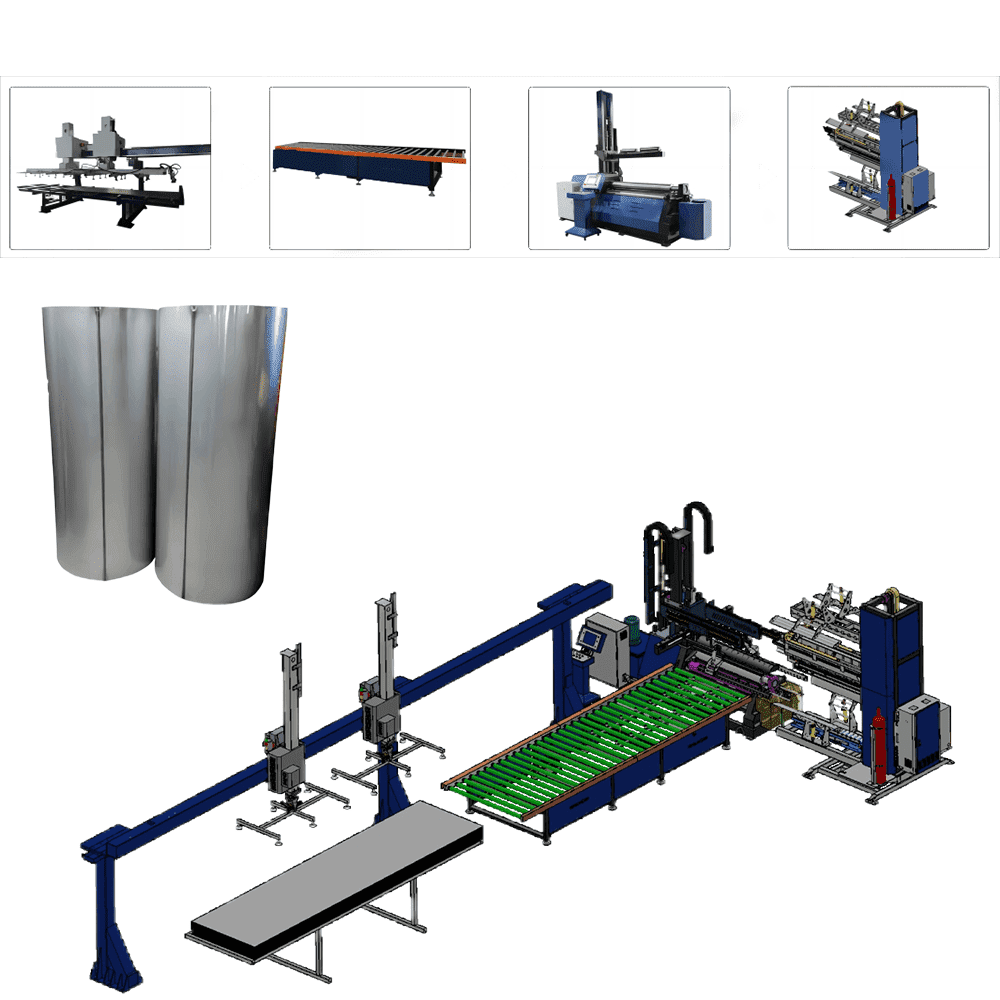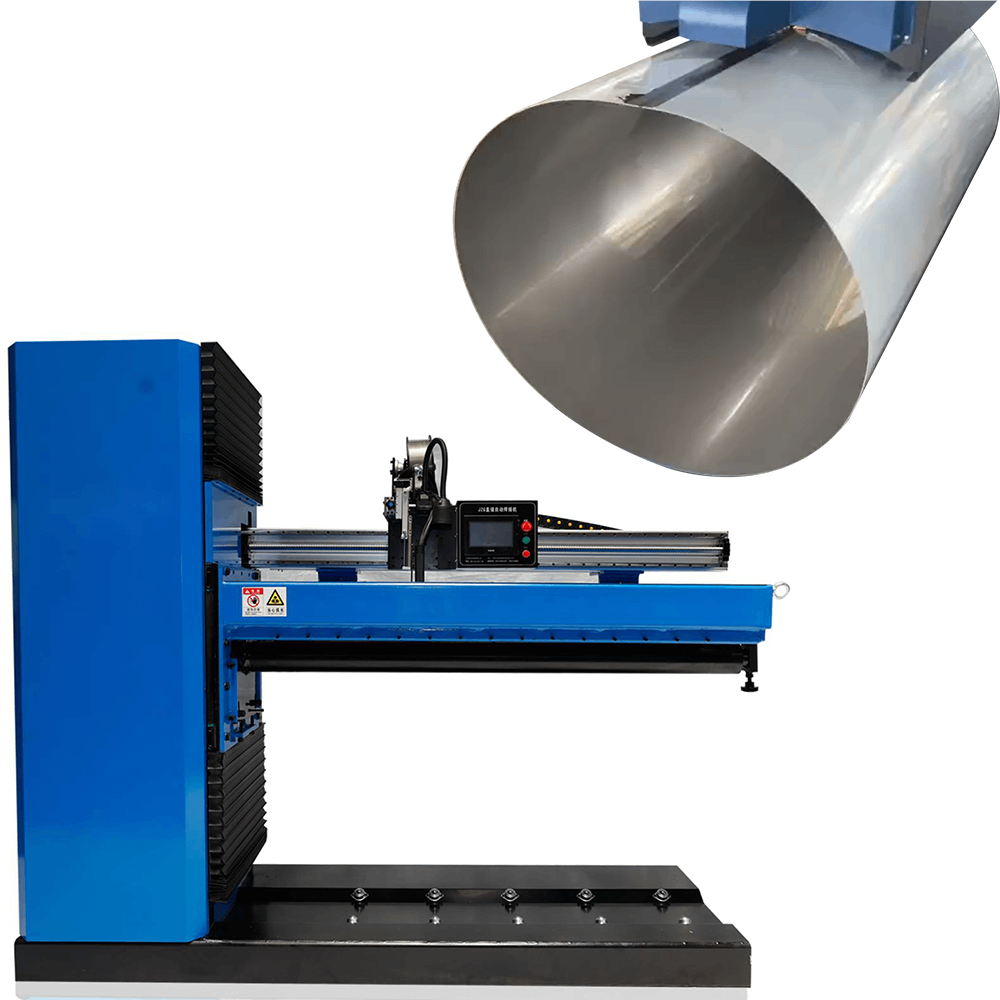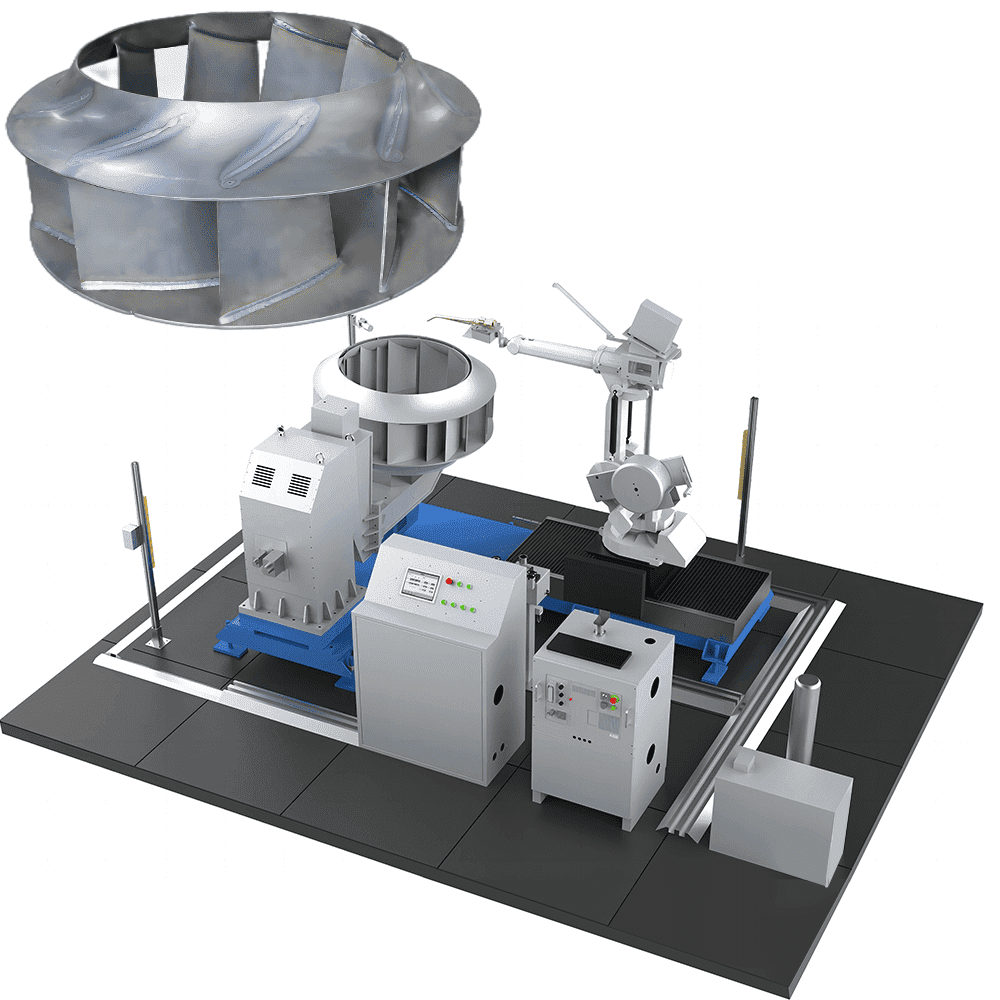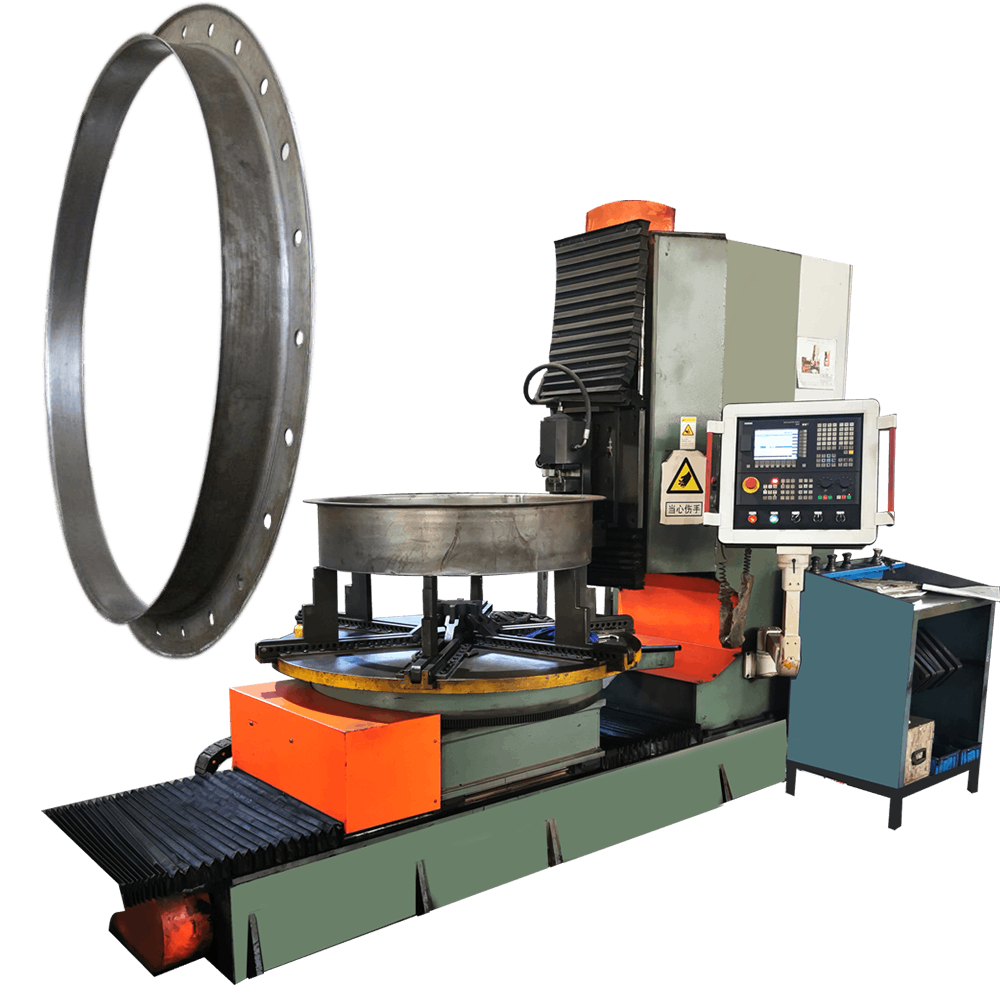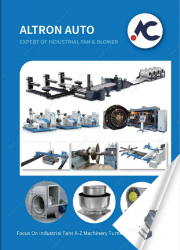About the application of CNC metal spinning tools
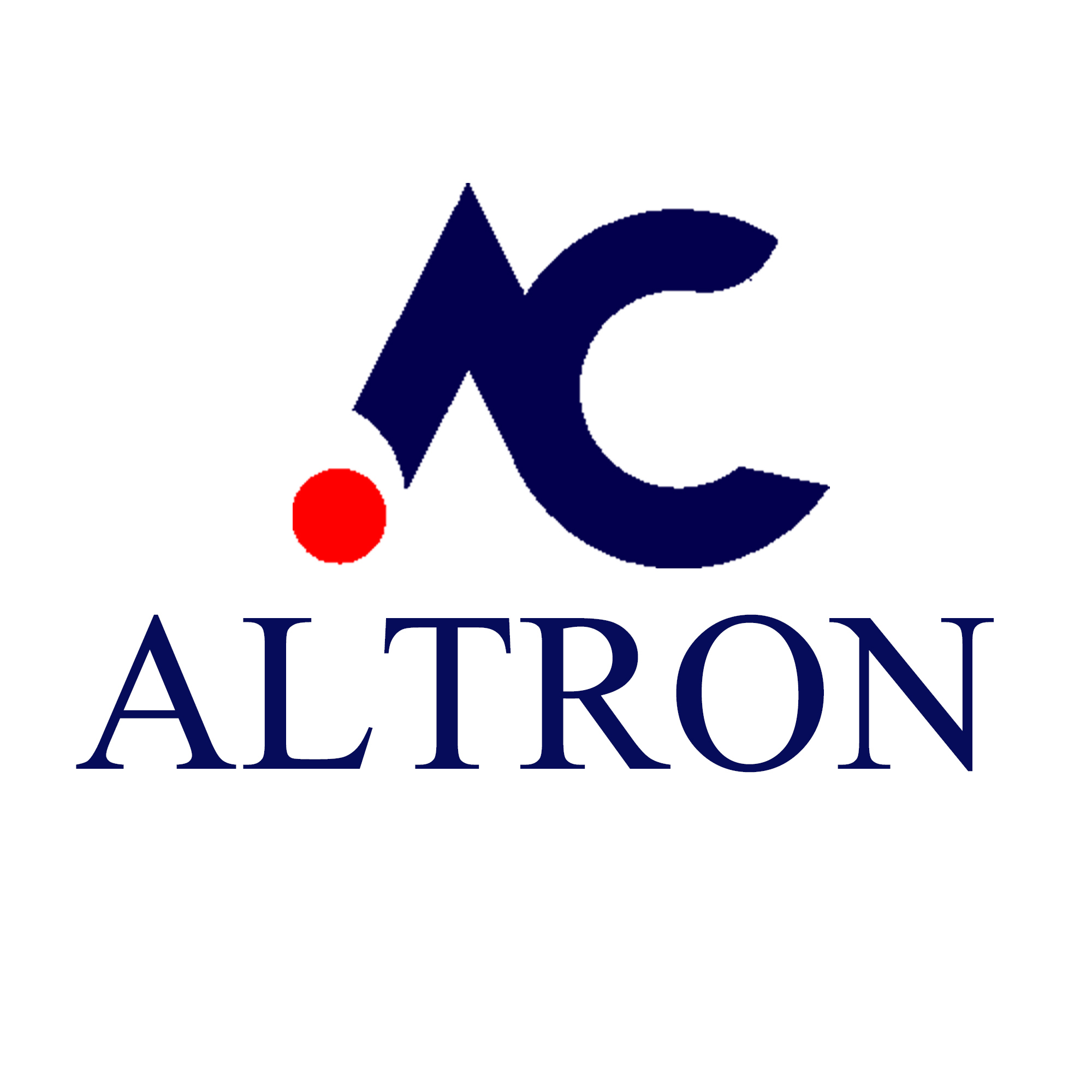 Edited by: Engineer Joby
Edited by: Engineer Joby
Overview of CNC Metal Spinning
CNC metal spinning, also known as computer numerical control metal spinning, is an advanced manufacturing process used to form symmetrical, cylindrical, or conical metal parts. This technique involves rotating a metal blank on a lathe and using CNC-controlled metal spinning tools to shape the metal with precision. Altron, a leading supplier in this field, boasts over 15 years of experience in manufacturing high-quality CNC metal spinning machines, offering various models tailored to different industrial needs.

CNC Metal Spinning Machine Types
Altron’s lineup of CNC metal spinning machines includes:
Single Roller CNC Spinning Machines: These machines are designed for simple, high-precision tasks where single roller tooling is sufficient.
Double Wheel CNC Spinning Machines: Ideal for more complex operations, these machines utilize two wheels to provide greater control and versatility.
Multi-roller CNC Flow Forming Machines: These advanced machines can handle intricate shapes and are often used in the aerospace and automotive industries.
Necking CNC Metal Spinning Machine: Specialized for creating necks on cylindrical parts, commonly used in manufacturing containers and pressure vessels.
Square Blank Inner Spinning Machine: Unique for its ability to work with square blanks, expanding the range of shapes that can be produced.
Applications of CNC Metal Spinning
CNC metal spinning is employed across various industries, including military, aerospace, medical, furniture, lighting, construction, automotive, and more. The versatility of this technology allows it to handle materials such as aluminum, copper, carbon steel, alloy steel, stainless steel, titanium, and other non-ferrous metals.
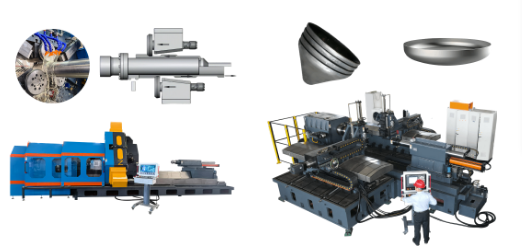
Main Components of CNC Spinning Machines
Key Elements
Metal spinning tools machines consist of several crucial components that ensure precise and efficient operation. These include:
Spindle and Lathe: The spindle rotates the metal blank at high speeds, while the lathe provides a stable platform for shaping.
Tooling System: This includes various rollers and forming tools that directly shape the metal according to programmed paths.
Control System: The CNC unit, which consists of software and hardware, manages the entire spinning process, ensuring accuracy and repeatability.
Support System: Components such as tailstocks and supports help maintain the stability and alignment of the workpiece during spinning.
Importance of Each Component
Each part of the CNC spinning machine plays a vital role in the overall process. The spindle and lathe ensure that the workpiece is rotated consistently and at the correct speed. The tooling system must be robust and versatile to handle different shapes and materials. The control system is the brain of the operation, translating digital designs into physical products. Lastly, the support system guarantees that the metal remains in place, minimizing errors and defects.
Advanced Features
Modern CNC metal spinning machines also come equipped with advanced features such as automated loading and unloading, real-time monitoring, and adaptive control technologies. These enhancements further improve efficiency, reduce manual labor, and enhance the precision of the finished products.
Core Points of Metal Spinning Technology
Choosing a Suitable CNC Spinning Machine
Selecting the right metal spinning tools is crucial for achieving the desired results. Factors to consider include the type of metal being spun, the complexity of the shapes, and the production volume. Altron offers a range of machines, each designed to meet specific requirements, from simple single roller tasks to complex multi-roller operations.
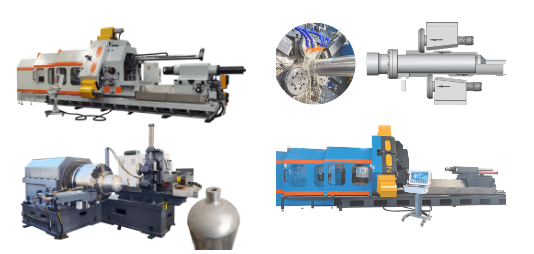
Selecting the Metal Spinning Tool Roller
The choice of tooling is another critical aspect of the metal spinning process. Tool rollers must be made from materials that can withstand the stress and friction of shaping metal. Different tools are required for various metals and shapes, and selecting the correct tool ensures smooth operations and high-quality results. Altron provides a variety of tool rollers to match the needs of different applications.
CNC Metal Spinning Trajectory Program
Programming the CNC trajectory is a sophisticated process that requires precise calculations and an understanding of the material behavior. The trajectory program dictates how the tool moves along the metal blank, shaping it into the desired form. Proper programming is essential to avoid defects and achieve consistent, accurate results.
Inspection and Adjustment
After the metal spinning process is completed, thorough inspection and adjustments are necessary to ensure the product meets technical specifications. This step involves checking for any deformations, thickness variations, or other defects. Any necessary adjustments are made to align with the required tolerances and standards.
Process Types of Metal Spinning
Conventional Spinning
Conventional spinning is the most basic form of metal spinning. It involves manually guiding a tool over a rotating metal blank to form the desired shape. While it requires a high level of skill and experience, it is highly versatile and suitable for low-volume production.
Shear Spinning
Shear spinning is a more advanced process where the metal is thinned out and stretched over a mandrel. This method is used to create parts with uniform wall thickness, such as cones and cylinders, making it ideal for applications requiring high-strength, lightweight components.
Flow Forming
Flow forming is a specialized type of metal spinning that involves using multiple rollers to shape the metal. This process is highly precise and efficient, suitable for producing complex shapes with tight tolerances. Altron’s multi-roller CNC flow-forming machines are particularly adept at handling this process.
Metal Spinning Applications Across Different Industries
Aerospace and Military
In aerospace and military applications, metal spinning is irreplaceable due to its ability to produce high-precision, high-strength components. Parts such as satellite dishes, missile nose cones, and communication equipment are commonly manufactured using metal spinning.
Automotive Industry
Metal spinning is extensively used in the automotive industry to produce components like wheels, exhaust systems, and various structural parts. The ability to form lightweight yet strong parts makes it invaluable for automotive manufacturers.
Medical and Environmental Sectors
The medical and environmental sectors require components that meet stringent quality and durability standards. Metal spinning tools provide the precision needed to manufacture surgical instruments, diagnostic devices, and environmental testing equipment that can withstand harsh conditions.
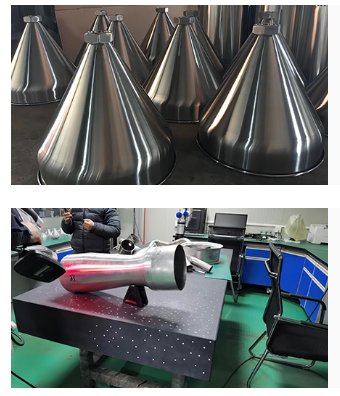
Advantages of Metal Spinning
Precision and Accuracy
One of the primary advantages of metal spinning is the high level of precision and accuracy it offers. CNC metal spinning machines can produce parts with tight tolerances, ensuring consistent quality across production runs.
Cost-Effectiveness
Metal spinning is a cost-effective manufacturing method, particularly for low to medium volume production. The process minimizes material waste and requires less tooling compared to other forming methods, reducing overall production costs.
Versatility
The versatility of metal spinning allows it to handle a wide range of materials and shapes. From simple cylindrical parts to complex geometries, metal spinning can accommodate various design requirements, making it suitable for multiple industries.
Customized Metal Spinning Machine and Special Fixture Design
Tailored Solutions
Altron offers customized metal spinning solutions tailored to specific factory and product requirements. By providing bespoke spinning machines, they ensure that each customer receives a solution optimized for their unique needs.
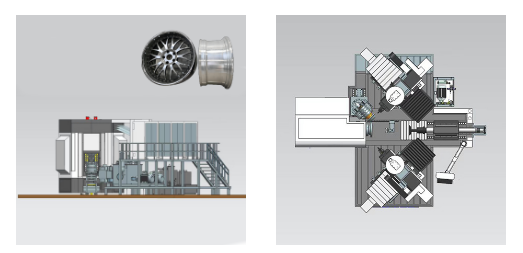
Advanced Machinery
Customized automotive forged wheel spinning machines, powerful dual-channel spinning machines, and multi-wheel metal forming spinning machines are just a few examples of Altron’s advanced machinery. These machines are designed to meet the high demands of modern manufacturing.
Specialized Fixtures
Specialized fixtures are essential for achieving the desired results in metal spinning. Altron designs and manufactures custom fixtures to ensure that each component is held securely and precisely during the spinning process, enhancing the overall quality of the final product.
Why Choose Altron’s CNC Metal Spinning?
Extensive Experience
With over 15 years of experience in manufacturing CNC metal spinning machines, Altron has established itself as a trusted name in the industry. Their expertise ensures that customers receive high-quality, reliable machines that meet their specific needs.
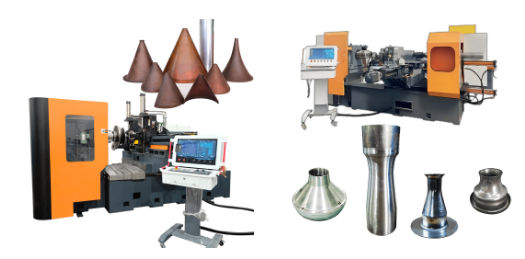
Comprehensive Product Range
Altron produces a wide range of CNC metal spinning tools, including single roller, double wheel, multi-roller, necking, and square blank inner spinning machines. This extensive product range allows customers to find the perfect machine for their applications.
Superior Customer Support
Altron provides exceptional customer support, including 24/7 online pre-sales meeting solutions with Engineer Joby. This commitment to customer service ensures that clients receive the guidance and support they need to make informed decisions and achieve successful outcomes.
Contact Altron for CNC Metal Spinning Solutions
For more information about Altron’s CNC metal spinning machines and to explore customized solutions for your manufacturing needs, visit Altron’s contact page. Their team of experts is ready to assist you in finding the perfect metal spinning solution to enhance your production capabilities.
Conclusion
CNC metal spinning is a vital technology in modern manufacturing, enabling the production of high-precision metal parts for a variety of industries. Altron, with its extensive experience and range of advanced CNC metal spinning machines, stands out as a leading supplier in this field. By understanding the main components of CNC forming machines, selecting the appropriate metal spinning tools, and ensuring precise programming and inspection, manufacturers can achieve exceptional results in their metal spinning projects. The versatility and efficiency of CNC metal spinning continue to drive its adoption across industries, proving its indispensable role in contemporary manufacturing.


